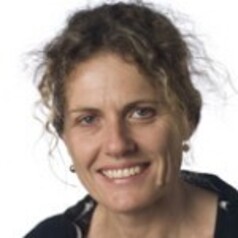
Margaret Kettle
Professor, School of Education and the Arts, CQUniversity Australia
Professor Margaret Kettle is a research-focused academic based in the School of Education and the Arts. Her research and teaching focus on education for diverse populations in formal and informal settings. Specifically, she is interested in the ways that pedagogy, language and culture intersect in people's lives and can be brought together to promote access, attainment and wellbeing in schooling, higher education, workplaces, and communities.
Less ![]()

Margaret Lowenstein
Assistant Professor of Medicine, University of Pennsylvania
Margaret (Maggie) Lowenstein, MD, MPhil, MSHP is a general internist, addiction medicine physician, and an Assistant Professor of Medicine at the Perelman School of Medicine. Dr. Lowenstein’s research focuses on novel strategies for implementing evidence-based treatment and harm reduction interventions for opioid and other substance use disorders. She is interested in the delivery of substance use care in general medical settings as well as developing and studying low-barrier treatment models for substance use disorder. Dr. Lowenstein also co-chairs the Opioid Use Disorder Workgroup of the Penn Medicine Opioid Task Force and collaborates with partners in Philadelphia to disseminate best practices for opioid use disorder care. She currently practices integrated addiction medicine and primary care at the University of Pennsylvania and attends on Penn’s inpatient addiction medicine consult service.
Dr. Lowenstein received her undergraduate degree at Williams College, a Master’s degree in Biology and Biological Anthropology at the University of Cambridge as a Herchel Smith Fellow, and her medical degree from the University of Pennsylvania Perelman School of Medicine. She completed her residency training in internal medicine at the University of California, San Francisco in the UCSF primary care program and then a fellowship in health policy with the National Clinicians Scholars Program at Penn.
Less ![]()

Margaret Maxwell
Director of Nursing, Midwifery and Allied Health Professions Research Unit, University of Stirling
Margaret Maxwell is Professor of Health Services and Mental Health Research at the University of Stirling. From 2016-2024 she was Director of the Chief Scientist Office funded Nursing, Midwifery and Allied Health Professions Research Unit (NMAHP-RU) and Deputy Director from 2009-2016. She was Head of the Scottish Government funded Scottish Primary Care Mental Health Research and Development programme from 2003-2009. She has been involved in health services research for over 30 years, leading or collaborating on over 70 research studies focusing on quality and delivery of care, especially in relation to the management of long-term conditions and common mental health problems. Her work has included evaluating different service models, different staff skill mixes and advanced practice roles for delivering effective and efficient healthcare. She has had a long-standing interest in developing research capacity and capability within the NHS workforce to enable delivery of evidence-based care. She is mostly known for her work in mental health and wellbeing, depression and anxiety, maternal mental health, child and adolescent mental health, and suicide prevention. She has been involved in European research collaborations spanning over 20 years tackling suicide, depression, and mental health in the workplace, and has evaluated several national programmes for improving mental health and long-term conditions.
Less ![]()
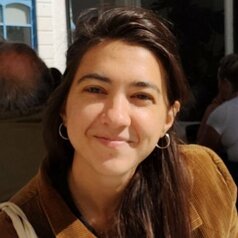
Margaret Neil
PhD candidate in International Development, University of Oxford
I am a PhD candidate at the University of Oxford’s Refugee Studies Centre in the Department of International Development. Previously I completed an MSc in Refugee and Forced Migration Studies at the University of Oxford. I also hold a BA in Humanities from Yale University.
Less ![]()
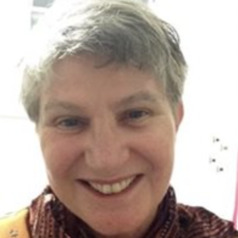
Margaret Scammell
Visiting Senior Lecturer, Department of Media & Communications, London School of Economics and Political Science
Maggie Scammell was a Senior Lecturer in the Department of Media and Communications at the LSE for 11 until 2010, and has continued to be associated with the department since then as a visitor. Before coming to the LSE she was a lecturer at the School of Politics and Communications at the University of Liverpool, and a Research Fellow at Joan Shorenstein Center for Press/Politics, at the John F. Kennedy School of Government, Harvard University. She took her PhD at the LSE, investigating the Thatcher government's use of marketing and public relations. Before joining the academy, she worked as a journalist for newspapers, magazines and television, writing and researching on a variety of subjects including general elections, gay politics and sport.
Maggie's research interests are in political communications, especially political campaigning, media and elections, governments and news management, political marketing and political journalism. Current research projects include populist political communication and its impact on mainstream party communication; and women in politics, focusing on the rise of women to heads of governments around the world.
Less ![]()
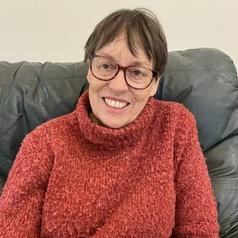
Margaret Seares
Emeritus Professor and Senior Honorary Research Fellow, The University of Western Australia
1991-1995 Head, School (now Conservatorium) of Music, UWA
1995-7 Seconded to WA Government, CEO Department for the Arts
1997-2001 Chair, Australia Council for the Arts
2001-2004 Pro Vice Chancellor UWA
2004-2009 Senior Deputy Vice Chancellor UWA
2009 Retired
2013 Australian Institute of Management Gold Medal Not for Profit Director
Less ![]()
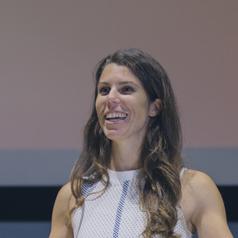
Margaret Sibley
Professor of Psychiatry and Behavioral Sciences, School of Medicine, University of Washington
My work focuses on community and school-based interventions for adolescents with ADHD and related difficulties in attention, motivation, and executive functions. I have authored or co-authored over 70 scientific papers and a book about how parents and professionals can empower teenagers with ADHD. My school-based models include summer programming to prepare teens with ADHD for the transition to high school and peer-delivered interventions for high schoolers. These approaches integrate motivational interviewing and executive function skill building. I am is a member of the Motivational Interviewing Network of Trainers. My work has been conducted in partnership with the National Institute of Mental Health, Institute of Education Sciences, Klingenstein Third Generation Foundation, and Children and Adults with Attention Deficit Hyperactivity Disorder.
Less ![]()
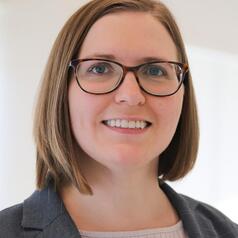
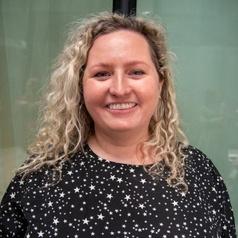
Margaret Steele
Postdoctoral Researcher, School of Public Health, University College Cork
My research centres on social and commercial determinants of health, especially in relation to unhealthy diets and food systems. In particular, I use resources from philosophy, public health, medicine and other disciplines to examine fatness/obesity as a cultural, social and political phenomenon.
Less ![]()
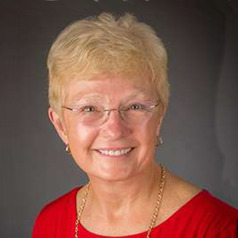
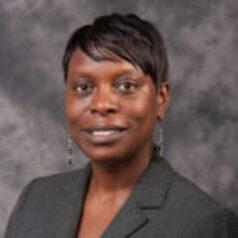
Margarita Guillory
Associate Professor of Religion, Boston University
Margarita Simon Guillory teaches courses on American religious history, digital religion, and religion and popular culture. Her research interests include identity construction in Africana esoteric religions, religion and technology, and social scientific approaches to religion. She is the author of Social and Spiritual Transformation in African American Spiritual Churches (Routledge 2017) and co-editor of Esotericism in African American Religious Experience (Brill 2014). In addition to these works, she has published articles in the Journal of Gnostic Studies, Culture and Religion, and Pastoral Psychology. Her current project, Africana Religion in the Digital Age, considers how African Americans utilize the Internet, social media, mobile applications, and gaming to forge new ways to express their religious identities.
Less ![]()
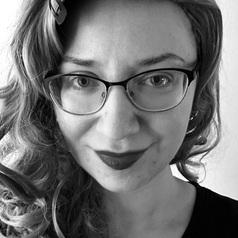
Margarita Vladimirova
PhD in Privacy Law and Facial Recognition Technology, Deakin University
Hello there. As an accomplished and driven PhD candidate at Deakin University, specialising in Tech, Facial Recognition and Information Security Law, I strive for an academic excellence and extensive legal experience. With over a decade of involvement in both academia and the legal profession, I am amazed by changes that are coming to the legal world.
At my position of an Associate Law Professor at Zhejiang Gongshang University Law School, I garnered recognition for my exceptional teaching abilities, receiving multiple accolades including the Law School's Outstanding Teacher Award. Prior to embarking on my current doctoral journey, I accumulated valuable practical expertise as an arbitration lawyer, legal advisor, and in-house counsel, providing me with a comprehensive understanding of various facets of the legal landscape.
In addition to my professional accomplishments, I have contributed significantly to the legal field through the publication of articles on international commercial arbitration and mediation, as well as authoring a book focusing on mediation agreements. I am also proud to hold an LL.M. degree from the esteemed University of the Pacific, McGeorge School of Law.
My research interests span a wide range of areas, including smart contracts, international arbitration law, mediation and negotiation, international maritime law, IP law, and tech law. With a genuine passion for education and student development, I am looking forward to discussion of various topics on this platform.
Less ![]()
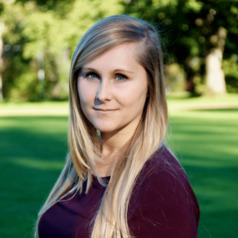
Margaux Pinaud
Project Coordinator, Centre on Conflict, Development & Peacebuilding, Graduate Institute – Institut de hautes études internationales et du développement (IHEID)
Less ![]()
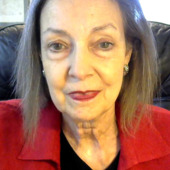
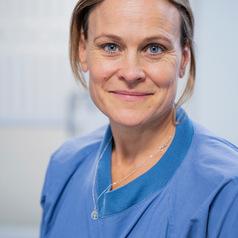
Margit Endler
obstetrician/gynaecologist and researcher, University of Cape Town
Margit Endler M.D. PhD, is a Swedish obstetrician/gynaecologist and researcher in the field of
global maternal health. Her research focuses on postpartum haemorrhage as well as advancing
safe abortion and contraceptive care. A main interest is researching and implementing
abortion and contraceptive counselling through telemedicine in Africa, the aim a several
clinical trials that she is currently conducting. She is a senior consultant at the Department of
Obstetrics at Söder Hospital in Stockholm, an assistant professor at the Department of
Women and Children´s Health, Karolinska Institutet, Stockholm and a member of the FIGO
Committee on Women Facing Crisis. She has worked as a clinician or researcher in Sweden,
Kenya, Haiti, Poland, and South Africa.
Less ![]()
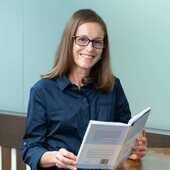
Margo Louise Turnbull
Assistant Professor of Health Communication , Hong Kong Polytechnic University
Less ![]()
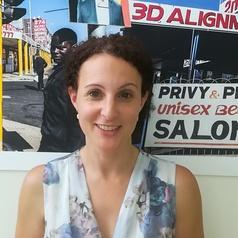
Margot Rubin
Lecturer in Spatial Planning, Cardiff University
I am an urban geographer and planner who is interested in working across and between spatial and political disciplines. My work is comparative, largely focused on the Global South, and draws on embedded and well-established research networks that span multiple countries. My research explores key questions of urban sustainability through various lenses, such as housing provision and mobility, framed by broader theoretical analyses of governance and gender. My research projects have ranged in focus from urban housing, land use management, transit-oriented development, to urban governance, questions of mobility and accessibility, and work on gender and the Geographies of Care. This has given me the scope to engage with broad conceptual themes of socio-economic rights, urban sustainability, spatial change and identity politics and their relationship to the City through comparative studies. These have included comparisons between Delhi, India and Johannesburg; Johannesburg and Cairo, Egypt; and I am currently involved in a comparative mobility study with colleagues in Maputo, Mozambique, and study of the housing/employment nexus of the urban youth in Hawassa, Ethiopia and Ekangala, South Africa.
Less ![]()
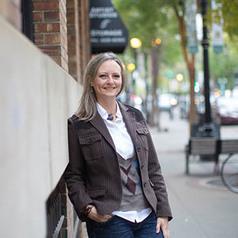
Marguerite Koole
Assistant Professor, Educational Technology & Design, University of Saskatchewan
In 2013, Dr. Koole completed her PhD in E-Research and Technology-Enhanced Learning at Lancaster University UK. Her thesis is entitled “Identity Positioning of Doctoral Students in Networked Learning Environments”. She also holds a Masters of Education in Distance Education (MEd) through the Centre for Distance Education at Athabasca University. Her focus was on mobile learning.
Dr. Koole has a BA in Modern Languages and has studied French, Spanish, German, Blackfoot, Cree, Latin, Mandarin, ancient Mayan hieroglyphics, and linguistics. Her interests in languages led her to teaching. She has taught English as a Second Language (ESL), English for Academic Purposes (EAP) and university-level writing at the University of Lethbridge, Athabasca University, private schools in Canada, and a private school in Spain.
While teaching at the University of Lethbridge, Dr. Koole became interested in designing online educational resources. She completed a college diploma in Multimedia Production with training in web development, audio, video, animation, 3D animation, marketing, and business.
Dr. Koole has worked in online and distance education for over 15 years. Through the years, she has been involved in teaching, instructional design, multimedia programming, content management, e-portfolios, and social software. She has designed interactive, online learning activities for various learning purposes and platforms—including print, web, and mobile devices.
Areas of interest;
Mobile learning
Makerspaces
Technology-enhanced learning
Socio-materialism/new materialism
Social constructionism
Language revitalization
Less ![]()
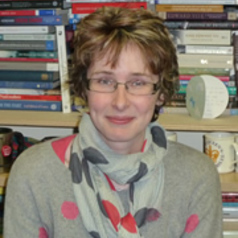
Mari Wiliam
Lecturer in Modern and Welsh History, Bangor University
Mari Elin Wiliam’s academic studies were completed at the School of History, Welsh History and Archaeology, Bangor University (BA 2002; MA 2004; PhD 2009). After a period teaching for the Open University and working at the Welsh Language Planning Centre, she was appointed a Research Assistant on the Duncan Tanner Archive project at Bangor in 2010–11.
Following a further year as both a part-time tutor and researcher on a Coleg Cymraeg Cenedlaethol website at Bangor, she was appointed a full-time lecturer in September 2012. Her PhD was supervised by the late Professor Duncan Tanner, and it focused on cultural and social change in Wales during the period 1950–62.
She is in the process of developing it into a Welsh language monograph entitled ‘Moderneiddio, hunaniaeth a Phrydeindod yng Nghymru, 1939-c. 1962’ (Modernisation, identity and Britishness in Wales, 1939-c. 1962). She is currently also participating in research projects and collaborations focusing on the history of the Urdd youth movement, the Llangollen International Eisteddfod, the Labour Party and oral history. She teaches and researches through the medium of English and Welsh.
Less ![]()

Mari Carmen Pelaez
PhD Candidate in neuroscience, Université Laval
Mari Carmen Pelaez received her Bachelor's degree in biochemistry from the University of Malaga (Spain) and her master’s degree in Neuroscience and cognition from the University of Navarra (Spain). She is currently a Ph.D. candidate in Neuroscience at Laval University (Canada) under the supervision of Dr. Chantelle F Sephton. Her research focuses on the impact of genetic variants related to amyotrophic lateral sclerosis (ALS) on neuronal morphology and connectivity.
Less ![]()
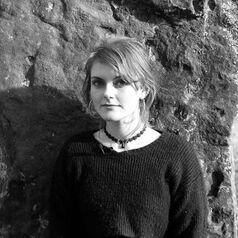
Mari Ellis Dunning
PhD Candidate, Associate Lecturer, Creative Writing, Aberystwyth University
Mari is currently a PhD Candidate at Aberystwyth University, specialising in Early Modern Welsh Witch Trails. She is also a part time teacher for the university's School of Languages and Literature, currently teaching Introduction to Poetry, and a tutor within the School of Lifelong Learning.
Mari's debut poetry collection, Salacia, was shortlisted for Wales Book of the Year 2019. She has since placed second in both the Lucent Dreaming Short Story Competition and the Sylvia Plath Poetry Prize. Her poetry collection Pearl and Bone was selected as Wales Arts Review’s Number 1 of 2022, and is available from Parthian.
Mari lives on the west coast of Wales with her husband, their two sons, and their very adorable poochon. She is the founder of Pay for Poets, a free resource to help writers earn a living through their work.
Less ![]()
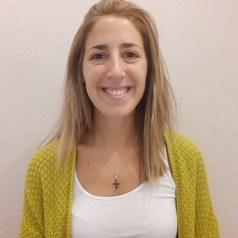
Mari Mar Boillos Pereira
Profesora contratada doctora de la Facultad de Educación de Bilbao, Universidad del País Vasco / Euskal Herriko Unibertsitatea
Lcda. en Filología Hispánica (UPV/EHU), Máster en Lingüística Aplicada (Universidad Antonio de Nebrija) y en Formación del Profesorado (Universidad de Deusto) y Doctora Internacional en Innovación educativa y aprendizaje a lo largo de la vida (Universidad de Deusto - 2016). En la actualidad, es parte del Departamento de Didáctica de la Lengua y de la Literatura de la Facultad de Educación de Bilbao (UPV/EHU) donde imparte clases en los Grados de Educación Primaria e Infantil. Está especializada en la formación continua del profesorado de lenguas y ha participado como ponente en congresos internacionales en torno a la innovación educativa. Asimismo, ha realizado estancias en diversas universidades internacionales (Holanda, Emiratos Árabes, EEUU, etc.).
Less ![]()
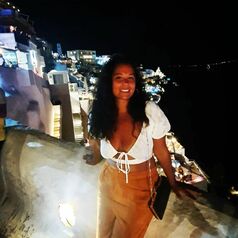
Maria Adams
Senior lecturer, University of Surrey
My research and teaching are centered on issues surrounding prisons, including food in prison and the effects of imprisonment on families of prisoners. I am a principal investigator for an ESRC funded project called Doing Porridge: Understanding women’s experiences of food in prison. This is a two year project from September 2021-September 2023. This project aims to analyse the experience of food in women’s prisons using an intersectional approach.
Less ![]()
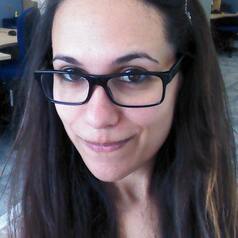
Maria Aristeidou
Lecturer in Technology Enhanced Learning, The Open University
Dr Maria Aristeidou is a Lecturer in Technology Enhanced Learning at The Open University and a fellow of the Higher Education Academy. Her work focuses on designing and evaluating learning technologies and improving diverse student bodies’ learning experiences and outcomes. Maria has been contributing to the MA in Online Teaching, the BA/MA in Childhood and Youth, and the development of resources for educators across sectors. She supports young people to engage in and appreciate science and scientific research.
Less ![]()
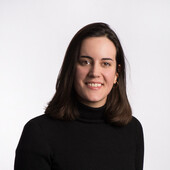
Maria Atienzar-Prieto
PhD Candidate, School of Health Sciences and Social Work, Griffith University
Less ![]()
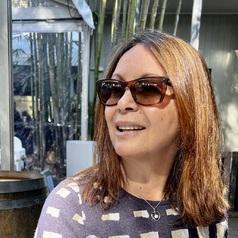
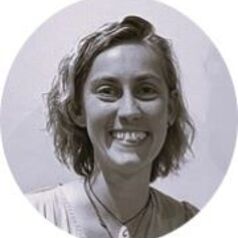
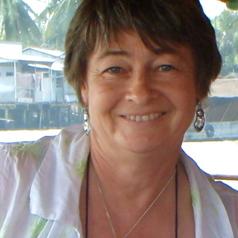
Maria Byrne
Professor of Developmental & Marine Biology, University of Sydney
Maria Byrne is Professor of Marine and Developmental Biology at the University of Sydney. For 12 years she was the director of One Tree Island Research Station, the University’s facility on the Great Barrier Reef. Over the years this iconic, fully protected reef system has provided a major platform for Prof Byrne’s research on the biology and ecology of marine invertebrates that has largely involved echinoderms as model organisms. Her work on comparative evolutionary developmental biology and marine climate change has been funded by the Australian Research Council and other agencies for over 20 years. In recent years Prof Byrne’s work has involved the quantification of the impacts of climate change stressors, ocean warming and ocean acidification on fundamental biological processes including growth, physiology, development and calcification. This work investigates the responses of marine invertebrates across life stages to climate change and has involved species from the tropics to the poles. Most importantly the labile nature of development and possibility of an in-built redundancy and adaptive capacity of developmental processes in a climate change world will be crucial to the resilience of some marine species. Her current research investigates potential for climate adaptation merging here two main areas of research, evo-devo and global change.
Less ![]()
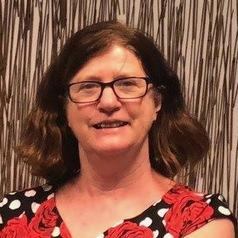
Maria Cunningham
Honorary Senior Lecturer, School of Physics, UNSW Sydney
My research interests are in radio, millimetre and sub-millimetre astronomy, molecular line astronomy, bioastronomy and computational astrophysics.
After taking formal retirement during COVID, I am continuing to work on my pet projects, including
Detecting new complex organic molecules in space, and hopefully finding some of the building blocks of life;
Using very complex organic molecules to put an evolutionary sequence on the formation of stars;
Determining how the structure of the Milky Galaxy affect the formation of stars, and
Investigating the relationship between turbulence in gas in the Milky Way Galaxy and star formation.
Using data intensive astronomy together with computational astrophysics to understand the relationship between star formation and the surrounding interstellar medium.
Less ![]()
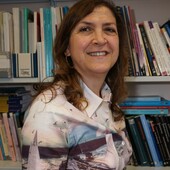
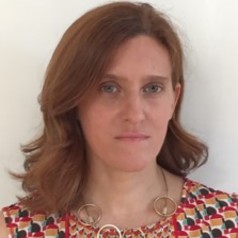
Maria G. Corradini
I am an Associate Professor in Food Science and the Arrell Chair in Food Quality at the Arrell Food Institute (University of Guelph). During my career, I have focused on developing procedures and protocols to identify and assess changes in food quality and safety linked to processing and handling practices throughout the supply chain, from producer to consumer. I have also developed and validated mathematical models to evaluate and predict how food processing and handling practices can favor or act in detriment of food quality, safety, and nutritional content. Using a systems dynamics perspective, I have leveraged my expertise to participate as the PI and co-PI in research projects that take an integrative view of food safety and security conditions within communities in Argentina (City of Buenos Aires), China (City of Macau), and USA (Newark, NJ). I have authored or coauthored over 110 research articles in refereed journals, 17 book chapters, two contributions to encyclopaedias, and designed three educational kits on STEM topics for middle school students.
Less ![]()
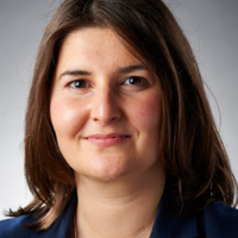
Maria Garcia
Senior Lecturer in International Relations, University of Bath
Prior to joining Bath in 2014, I was a Marie Curie International Fellow at the NCRE, University of Canterbury (New Zealand) and the University of Nottingham. During this time I conducted research on the various free trade agreement strategies of global economic powers in the region, and the effects of strategic competition on their strategies.
Previously, I lectured at Birkbeck College, London and the University of Nottingham. I have been also been a visiting fellow at ANUCES, Australian National University, Monash University in Melbourne, the University of Salzburg and ULB in Brussels.
My current projects include a book on the divergent free trade agreement strategies of large (China, USA, EU) and small economies (Singapore, Chile, New Zealand) in Asia-Pacific and their effects on the development of future economic governance in the region.
Alongside Annick Masselot of the University of Canterbury, I am investigating Asian resistance to European norm promotion through free trade agreements.
Research interests:
International trade and economic governance
EU-USA trade negotiations (TTIP) and Transpacific Partnership negotiations (TPP)
EU-Asia, EU-China, EU-Australasia and EU-Latin America Relations
Regional integration and inter-regionalism
Societal impacts of trade agreements/ Values and trade
International Political Economy
Less ![]()
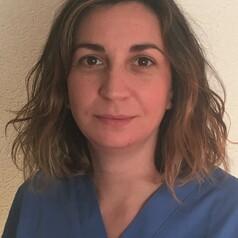
María García González
Profesora de Odontología, Universidad Europea
Vocal Junta Directiva de la SEDCYDO.
Doctora en Ciencias Odontológicas. Cum Laude. UCM
Especialista en Trastornos Temporomandibulares y Dolor Orofacial. UCM.
Experta en Medicina Dental del Sueño. FESMES.
Profesor universitario Departamento Odontología Clínica. Universidad Europea de Madrid.
Less ![]()
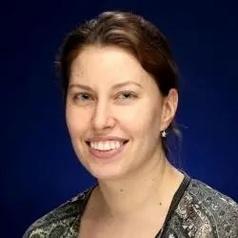
Maria Garcia-Puente
Associate Professor of Spanish, California State University, San Bernardino
Dr. María García Puente (California State University San Bernardino) scholarship focuses on small cinemas and emergent female filmmakers in Hispanic cinemas.
Less ![]()
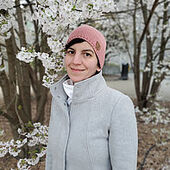
- Market Data





















